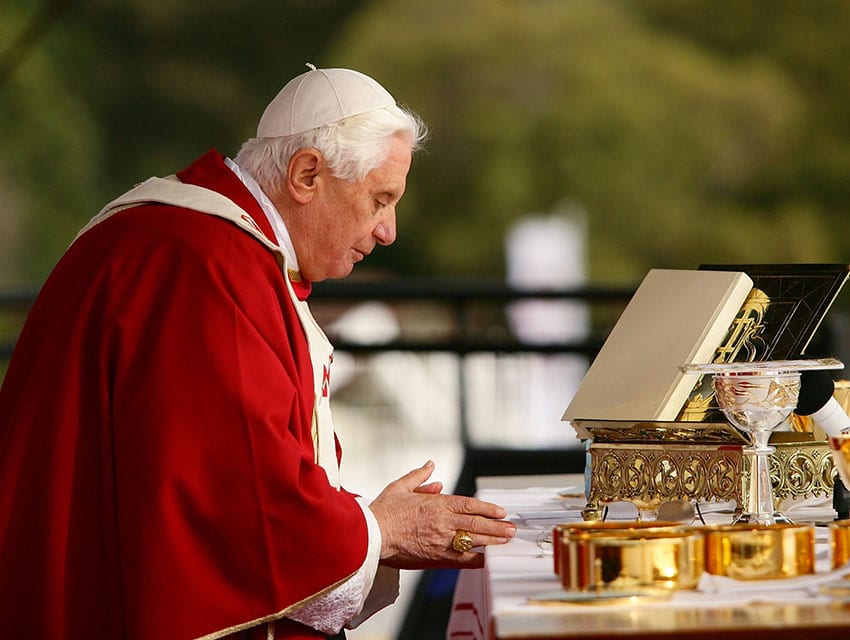
When the new order of the Mass was promulgated by Pope Paul VI he was aware that the move was not universally applauded.
Many indeed were quite distraught about it. English Catholics, for example, wanted to know how a Mass for which many of their martyrs had died, could suddenly, overnight, be suppressed?
Evelyn Waugh even described the situation as a “bitter trial” of his faith while others accused Pope Paul of a kind of cultural barbarism.
In a Wednesday audience address Pope Paul sought to defend his decision by saying that although we were indeed “parting with the speech of Christian centuries” and “becoming like profane intruders in the literary precincts of sacred utterance,” the decision was necessary for pastoral reasons, because “participation by the people is worth more—particularly by modern people, so fond of plain language which is easily understood and converted into everyday speech.”
In legal language we would say that the idea that people want a liturgy using the language of everyday speech is a “moot point” (something debatable) and as an academic observation one would say that Paul VI based his decision on a sociological judgment about what millions of Catholic might like, rather than on any theological principle.
Leaving aside the observation that millions of Catholics world-wide do not necessarily agree that “plain language” is preferable in a sacred context, this decision left out of consideration what sociology and linguistic philosophy can tell us about the use of hieratic languages, that is, languages that are used exclusively for some sacred purpose.
It is therefore worthwhile exploring the sociological territory of the use of hieratic languages along with the comments made by bishops attending the Second Vatican Council on the use of Latin in the liturgy.
The 1962 Apostolic Constitution of Pope John XXIII known as Veterum Sapientia, is also of interest in this context.
John XXIII had argued that the Latin language, being universal, immutable, and non-vernacular, is uniquely suited for the Catholic Church since the church as an institution transcends all national boundaries.
One can easily understand the stance of John XXIII, when, for example, attending Mass in a Scandinavian country where most of the Catholics are migrants from Africa and Asia and struggle as much with the vernacular language of their adopted country as they might with ecclesiastical Latin.
Cardinal Ratzinger, as he was, once remarked that he thought that the Sacred Scriptures should be read in the local language of the people attending a Mass but that the Kyrie, Gloria, Credo, Sanctus, Agnus Dei, Pater Noster and the Eucharistic Prayer in general should have been retained in their original Greek or Latin.
Having attended many Masses in Rome where the readings are delivered in different languages, for example, the first reading in French and the second in Spanish with the Gospel in German, followed by prayers of the faithful in half a dozen languages, or maybe just in English, then the Eucharistic Prayer in Italian, it is easy to understand why Ratzinger and others thought that it might be valuable to retain a universal liturgical language.
There are quite a number of reasons why many religious traditions, not just Christianity, have recourse to an hieratic language.
Professor Tracey Rowland’s lecture on “The Speech of Christian Centuries” is the third of four marking 60 years since the Second Vatican Council’s Constitution on the Sacred Liturgy, Sacrosanctum Concilium. The lecture will be delivered at the University of Notre Dame’s Broadway Campus on 22 November at 6pm.
